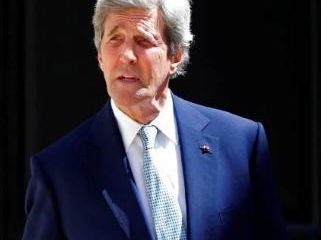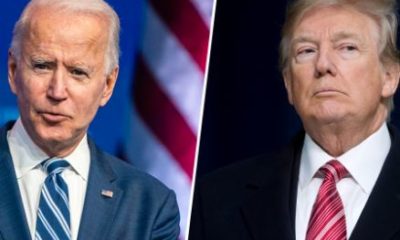World
Promise safe, quality education for every child: Malala at UN

United Nations: Malala Yousafzai, a Pakistani education advocate, on Friday asked world leaders who are here to attend UN General Assembly to promise that every child will have the right to safe, free and quality primary and secondary education.
Malala Yousafzai made the remarks as she was speaking at the UN General Assembly alongside 193 youth representatives from the 193 UN member states, as per reported.
Also on Friday, world leaders adopted the Sustainable Development Goals in the General Assembly, which include the global efforts to improve education opportunities for every child in the world.
“World leaders sitting there, look up because the future generation is raising their voice,” Yousafzai, who was shot in 2012 by the Taliban for attending classes, told hundreds of senior government officials in a stirring address delivered from the highest mezzanine of the General Assembly Hall.
“Today, we are 193 young people representing billions more. Each lantern we hold represents the hope we have for our future because of the commitments you have made to the global goals,” she said as each young person on the scene held up a blue light.
The 17 Global Goals are part of the 2030 Agenda for Sustainable Development, which was adopted by the General Assembly just minutes after the youngest-ever Nobel Laureate addressed the Hall.
They aim to build on the work of the historic Millennium Development Goals (MDGs), which in September 2000 rallied the world around a common 15-year agenda to tackle the indignity of poverty.
“I’m hopeful that we all in the UN will be united in the goal of education and peace, and that we will make this world not just a better place, but the best place to live. Education is hope, education is peace,” Yousafzai said.
At a press conference following the event, she was joined by girl ambassadors from Syria, Nigeria and Pakistan who echoed her call to world leaders to ensure that every child gets 12 years of safe, free and quality education.
“The world leaders need to take all these issues more seriously,” Yousafzai told reporters. “They need to give it full attention and they should think about their own children. No one leader would want their own daughter, their own son, to be neglected of education, to be neglected in society and not given full rights.”
“It’s really tragic what’s happening to children around the world, especially in Syria, in Iraq, and how they’re suffering. It’s shocking,” she said.
Yousafzai noted how difficult it is for her to watch the news about those conflict-torn areas because every time she does, it makes her cry that no one is taking action while children die and girls continue to be sexually abused.
“I’m hopeful that when girls like us come together and raise our voices, the voices of those girls will be listened to because we speak on their behalf, we speak for their rights,” she said.
Yousafzai’s first visit to the UN took place on July 12, 2013, which coincided with her 16th birthday. The date is now marked internationally as Malala Day.
World
Lockdowns in China Force Urban Communities to Defy Censorship and Vent Frustration Online

Shanghai’s rich middle class is leading a wave of online dissent over the strict and prolonged lockdowns imposed in various parts of the country. Chinese internet censorship is struggling as patience is wearing thin in many urban centers, coming up with creative forms of online protests.
Social Media Posts Revealing Lockdown Tension in Shanghai
Drawn-out lockdowns are nothing new in China as authorities insist with the nation’s zero-Covid policy since the start of the pandemic. Currently over This time around, however, metropolitan areas like Shanghai are increasingly difficult to keep quiet, given that its more than 25 million residents have seen weeks of total isolation along with food shortages and many other service interruptions.
Dozens of towns and reportedly over 300 million Chinese citizens have been affected by lockdowns of different severity. As expected, urban netizens have been most outspoken over their difficulties by finding creative ways to get around state censorship and bans placed on topics, news comments and spontaneous campaigns.
Shanghai residents have been using mobile proxies and hijacking seemingly unrelated hashtags to talk about healthcare issues, delivery failures and the overall severity of their situation. The “positive energy” that the Chinese government wants to transmit during the recent prolonged series of lockdowns does not come naturally to those counting food supplies and online censors are working hard to filter words, trending topics and undesired social media sharing.
WeChat groups and message threads are under constant monitoring. Posts questioning the zero-Covid approach have been quickly deleted, including by leading Chinese health experts like Dr. Zhong Nanshan. Video footage is soon censored and protests and investigations are quickly made to disappear.
Where this has not worked, officials have exposed banners with warnings and outright threats like “watch your own mouth or face punishment”, while drones have been patrolling the city skies. Yet, if anything, this has led to further tensions and unspoken confrontation with Shanghai’s educated and affluent middle class.
Creative Online Solutions Harnessing Civic Energy
Announcements by Chinese social media that they would be publishing the IP addresses of users who “spread rumors” have not helped either. Tech industry research has shown that much of Asia’s tech-savvy population has a habit of using mobile proxies and other privacy tools, quickly finding workarounds to browse the internet freely and talk to the world about the hottest topics.
The sheer volume of forbidden posts is already a challenge for the very censorship system, experts explain. Unable to track all trending hashtags, state workers overlook topics that speak about the US, Ukraine or other popular news. Linking human rights elsewhere to their situation, Chinese online dissidents establish their informal channels and “hijack” the conversation to share personal or publicly relevant information about the Covid suppression in their town.
Sarcastic and satirical posts still dominate. Others hope to evade the censors by replacing words from famous poems or the national anthem. One thing is certain – social media, when harnessed with the right creativity, has proven its ability to mount pressure on the government in even some of the most strictly controlled tech environments like China.























